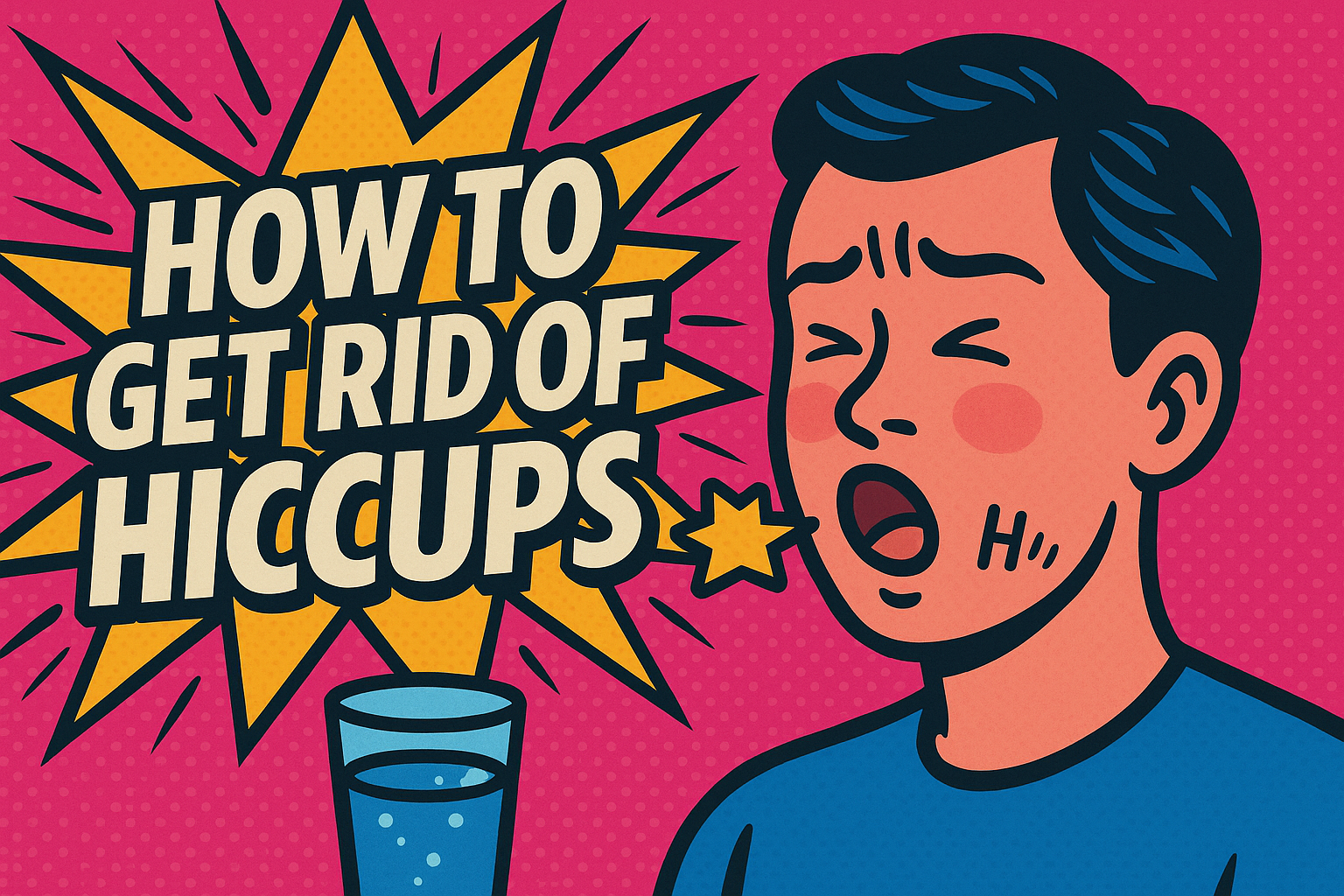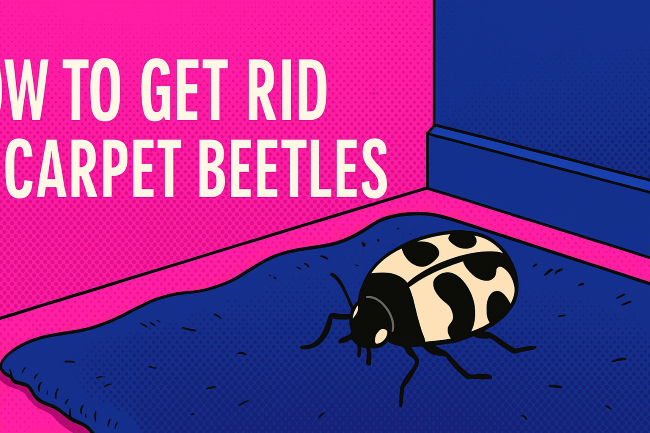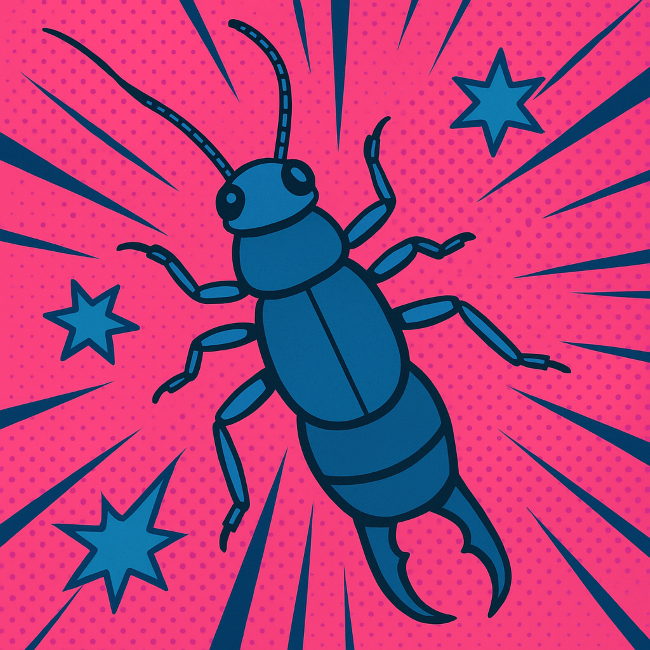How to Get Rid of Hiccups: Quick and Easy Tips
Hiccups are sudden, annoying muscle contractions in the diaphragm. They can be super embarrassing and ruin your day. Imagine you’re in a meeting, on a date, or just eating when – hiccup! It’s like your body is playing a prank on you.

Don’t worry; we’ve got you covered. There are many simple, effective remedies to stop hiccups in their tracks. From quick fixes to long-term solutions, we’ll share our top tips to help you say goodbye to hiccups for good.
🎯 Key Takeaways
- Simple breathing techniques can help calm hiccups
- Certain foods and drinks can trigger hiccup episodes
- Quick remedies like holding your breath or drinking water can be effective
- Managing stress can help reduce hiccup occurrences
- Some home remedies can provide fast relief from hiccups
🧬 Understanding Hiccups: What Causes These Involuntary Spasms
Hiccups are annoying, involuntary spasms of the diaphragm. They can disrupt our daily activities. But what causes these spasms, and why do they seem to happen at the most inconvenient times?
The Science Behind Hiccups
Hiccups happen when the diaphragm contracts involuntarily. This causes the glottis (the opening between the vocal cords) to close suddenly. This results in the characteristic “hic” sound.
This complex process involves the coordination of multiple nerves. The phrenic nerve controls the diaphragm, and the vagus nerve regulates the glottis.
Common Triggers for Hiccup Episodes
So, what sets off these hiccup episodes? Common culprits include stress, strong emotions, eating or drinking too quickly. Consuming certain types of food and drink, such as spicy or carbonated items, can also trigger hiccups.
Understanding these triggers can help us prevent hiccups. Or, at the very least, be prepared when they strike.
Why Some People Hiccup More Than Others
Some people seem to hiccup more frequently than others. It’s not just bad luck. Factors like anxiety, gastroesophageal reflux disease (GERD), and certain medications can increase the likelihood of hiccup episodes.
By recognizing these factors, we can take steps to mitigate them. This can help reduce the occurrence of hiccups.
By grasping the underlying causes of hiccups and being aware of the common triggers, we can better equip ourselves to deal with these pesky spasms. Whether you’re a frequent hiccuper or just an occasional sufferer, understanding hiccups is the first step towards finding relief.
💨 How to Get Rid of Hiccups: Basic Techniques
Hiccups got you down? We’ve got some straightforward solutions to help you breathe easy again. Let’s explore some basic techniques that can help you stop hiccups and get back to your day.
Holding Your Breath Methods
One of the simplest hiccup treatments is holding your breath. Take a deep breath in and hold it for as long as you comfortably can. This helps to reset your diaphragm, which can become irritated and cause hiccups. Repeat this process a few times, and you might just find your hiccups disappearing.
Breathing Into a Paper Bag
Another effective method is breathing into a paper bag. This old trick helps to increase the carbon dioxide levels in your blood, which can help calm down your diaphragm. Simply place a paper bag over your mouth and nose, and breathe in and out slowly. Be sure to use a paper bag, not a plastic one, to avoid any accidents.
Controlled Breathing Exercises
Controlled breathing can also work wonders for hiccups. Try inhaling for a count of four, holding your breath for a count of four, and exhaling for a count of four. Repeat this cycle a few times. This technique helps to regulate your breathing and can calm the spasms that cause hiccups. For more tips on managing hiccups, check out www.getridofff.com for additional resources.
These basic techniques are easy to try and can be quite effective in stopping hiccups. Whether you prefer holding your breath, breathing into a paper bag, or practicing controlled breathing exercises, there’s a method here for everyone. So next time hiccups strike, you’ll know just what to do.
💧 Water-Based Remedies for Instant Relief
We’ve all been there – hiccuping uncontrollably, and desperate for a solution; that’s where water comes in. Drinking water in different ways can help stimulate the vagus nerve and stop hiccups. It’s simple, effective, and you probably have everything you need right in your kitchen.
The Upside-Down Drinking Method
Drinking water upside-down is an unusual method to stop hiccups. You bend over and drink from a glass of water while upside-down. It’s a bit tricky, but it can be effective. The change in pressure and the act of drinking upside-down can shock your diaphragm out of its hiccuping fit.
Cold Water vs. Warm Water Techniques
Some people swear by drinking cold water to stop hiccups, while others prefer warm water. Cold water can stimulate the vagus nerve and stop hiccup spasms. Warm water can relax the diaphragm. You can try both to see which works best for you.
Gargling with Ice Water
Gargling with ice water is another water-based remedy that can be effective. The cold water can stimulate your vagus nerve, and the act of gargling can distract your diaphragm from hiccuping. It’s a bit uncomfortable, but if it works, it’s worth the chill.
These water-based remedies offer natural ways to cure hiccups without medication. Whether it’s drinking upside-down, using cold or warm water, or gargling with ice water, there’s a good chance you’ll find a method that works for you. So next time you get hiccups, give one of these a try – your diaphragm will thank you!
🍯 Food and Drink Solutions That Stop Hiccups
We’ve all been there – hiccuping uncontrollably, and desperate for a cure. Let’s explore some tasty fixes. Certain foods and drinks can help stimulate the vagus nerve or interrupt hiccup spasms, providing quick relief.
Sugar, Honey, and Peanut Butter Remedies
Swallowing a spoonful of sugar is a classic hiccup remedy. The sweetness stimulates the vagus nerve, helping to stop hiccup spasms. Honey and peanut butter can also be effective. Their thick textures require slow, deliberate swallowing, giving your diaphragm a break.
For instance, try swallowing a teaspoon of peanut butter. Its sticky texture demands your attention, and the hiccups might just fade away.
Lemon, Vinegar, and Other Sour Solutions
Sour tastes can also be a hiccup’s worst enemy. Sucking on a lemon or drinking a small amount of vinegar can stimulate the nerves in the throat and help stop hiccups. The acidity can be quite effective, so be cautious if you have a sensitive stomach.
Some people swear by gargling with a mixture of water and vinegar. They claim it helps relax the diaphragm and stop hiccup spasms.
Carbonated Beverages and Hiccup Relief
Drinking a carbonated beverage, like soda or sparkling water, can sometimes help alleviate hiccups. The sudden change in pressure in the stomach and the release of carbon dioxide may help stimulate the diaphragm and stop hiccup spasms.
While these remedies can be helpful, it’s essential to remember that hiccups are usually harmless and temporary. If you’re looking for more tips to eliminate hiccups, trying a combination of these food and drink solutions might just do the trick.
🤸 Physical Techniques for Stubborn Hiccups
When hiccups won’t go away, it’s time to try something stronger. We’ve all been there, stuck in a meeting or a date, and hiccups pop up. They can be really annoying. That’s why we have physical methods to calm your diaphragm and stop hiccups.
Gentle Pressure on the Diaphragm
One good way is to press gently on your diaphragm. Put your fingers on your stomach, just below your ribcage, and press softly but firmly. This can calm the spasms that cause hiccups. You can also lean forward or pull your knees up to your chest for more pressure.
Pulling on Your Tongue
Another trick is to pull on your tongue. Yes, it’s a real thing! Have someone gently pull your tongue, or do it yourself. The sudden stimulation can reset your diaphragm and stop hiccups.
The Valsalva Maneuver and Other Physical Interventions
The Valsalva maneuver is also worth a try. Take a deep breath, hold it, and then try to exhale while keeping your mouth closed and your nose pinched shut. This increases chest pressure and can stop spasms. Other methods include applying ice to the diaphragm or having someone startle you (though this might not be the most fun!).
These physical techniques are simple to try at home. They can help with both occasional and persistent hiccups. So, next time hiccups happen, try one of these methods and enjoy the rest of your day hiccup-free!
🧠 Psychological Approaches to Stopping Hiccups
Hiccups can affect more than just our diaphragm. They can also impact our mental state. Stress, excitement, and emotions can trigger hiccups. Using psychological techniques can help usstop hiccupsand find relief.
Startling or Surprising Yourself
One simple trick tostop hiccupsis to startle or surprise yourself. This method interrupts hiccup spasms with a sudden stimulus. A loud noise or a friend jumping out can reset your diaphragm andend those annoying hiccups. It’s like fear can kill the hiccup too!
Concentration and Distraction Techniques
Concentration and distraction can also helpstop hiccups. Focus on a task that needs your full attention. Try solving a math problem or learning a new skill. The goal is to engage your brain so much that it forgets about the hiccups. Remember, “the mind is a powerful tool,” and it can stop hiccups.
Relaxation Methods for Stress-Induced Hiccups
Relaxation techniques are great for stress-induced hiccups. Deep breathing, progressive muscle relaxation, or meditation can calm your nervous system. These practices help your body relax and reduce hiccups. As they say, “A calm mind is a hiccup-free mind.”

By using these psychological methods, you can find natural ways to cure hiccups. You won’t need medication or invasive treatments.
🛡️ Preventing Hiccups Before They Start
Hiccups can be annoying, but you can stop them before they start. Changing your daily habits and lifestyle can help. At www.getridofff.com, we think prevention is the best way to deal with hiccups.
Eating and Drinking Habits to Modify
Changing how you eat and drink can prevent hiccups. Eat slowly and mindfully to avoid irritating your diaphragm. Stay away from carbonated drinks and hot beverages that can cause hiccups.
Choose warm, non-carbonated drinks instead. They can calm your digestive system.
Avoiding Triggers in Your Diet
Knowing and avoiding diet triggers can also stop hiccups. Foods like spicy foods, fatty or greasy foods, and acidic foods can cause hiccups. If you find these foods trigger hiccups, cut back or avoid them.
Keeping a food diary can help you spot patterns. This way, you can make the right changes.
Lifestyle Changes That Reduce Hiccup Frequency
Simple lifestyle changes can also help. Manage your stress levels with meditation or deep breathing exercises. Regular exercise can also boost your digestive health and reduce hiccups.
⚠️ When to Seek Medical Help for Persistent Hiccups
Hiccups are usually harmless, but if they last too long, it’s a sign to look deeper. If your hiccups go on for hours or days, it’s not just a nuisance. It could mean there’s a bigger issue that needs a doctor’s help.
Signs That Hiccups Are More Than Just Annoying
If you have trouble breathing, chest pain, or severe stomach pain with your hiccups, get medical help right away. These signs could mean something serious is going on. Also, if you have a fever, are vomiting, or hiccups are messing up your sleep or daily life, see a doctor.
Medical Treatments and Medications for Chronic Hiccups
Doctors might give you medicine like chlorpromazine, metoclopramide, or baclofen for long-lasting hiccups. These drugs calm the nerves that control breathing. Sometimes, treating the cause of your hiccups is the best way to stop them. For example, if an infection is causing your hiccups, you might need antibiotics.
Underlying Conditions That May Cause Persistent Hiccups
Many health problems can lead to chronic hiccups, like nerve damage or stomach issues. Even some cancers can cause hiccups. Finding and treating these problems is very important.
For more info on how to get rid of hiccups, check out www.getridofff.com. Knowing why you have hiccups is the first step to fixing them.
✅ Final Thoughts
So, there you have it – a treasure trove of tips and tricks to help you get rid of those pesky hiccups. From holding your breath to sipping on some sugar water, we’ve explored a range of remedies to suit every need.
We’ve learned that hiccups can be triggered by a variety of factors. These include eating too quickly, drinking too much, or even stress. Armed with this knowledge, you can now take steps to prevent hiccups before they start.
At the end of the day, it’s all about finding what works for you. So, don’t be afraid to try out different methods until you find your hiccup-busting holy grail. And if all else fails, you can always visit www.getridofff.com for more tips and tricks.
Here’s to a hiccup-free life – may your days be hiccup-free and your laughter be contagious!
❓ FAQ
What are hiccups, and why do they happen?
Hiccups are sudden, involuntary contractions of the diaphragm. They can be caused by eating too fast, drinking too much, or feeling stressed. Our article delves into the science behind hiccups and common causes.
How can I get rid of hiccups quickly?
We offer various remedies to stop hiccups. Try holding your breath or gargling with ice water. Our article also covers water-based remedies, food and drink solutions, and physical techniques.
Are there any home remedies for hiccups that actually work?
Yes, many home remedies can help with hiccups. Drinking upside-down, using sugar or honey, and applying gentle pressure to the diaphragm can be effective. Relaxation techniques like deep breathing or meditation can also help calm your diaphragm.
Can certain foods or drinks trigger hiccups?
Yes, some foods and drinks can cause hiccups. We discuss common culprits like carbonated beverages, spicy foods, and hot or cold drinks. Being mindful of your diet can help prevent hiccups.
When should I seek medical help for hiccups?
Seek medical help if hiccups last more than a few hours, are severe, or come with pain or breathing trouble. We outline signs that hiccups may be serious and discuss potential underlying conditions.
Can stress or anxiety cause hiccups?
Yes, stress and anxiety can lead to hiccups. We explore the psychological aspect of hiccups and provide tips on relaxation techniques to stop hiccups.
Are there any lifestyle changes I can make to prevent hiccups?
Yes, changing your eating and drinking habits, avoiding diet triggers, and reducing stress can help prevent hiccups. Our section on preventing hiccups offers more advice.
Can hiccups be a sign of an underlying medical condition?
Persistent hiccups can signal an underlying medical issue, like respiratory or gastrointestinal problems. We discuss potential conditions and medical treatments for chronic hiccups.



